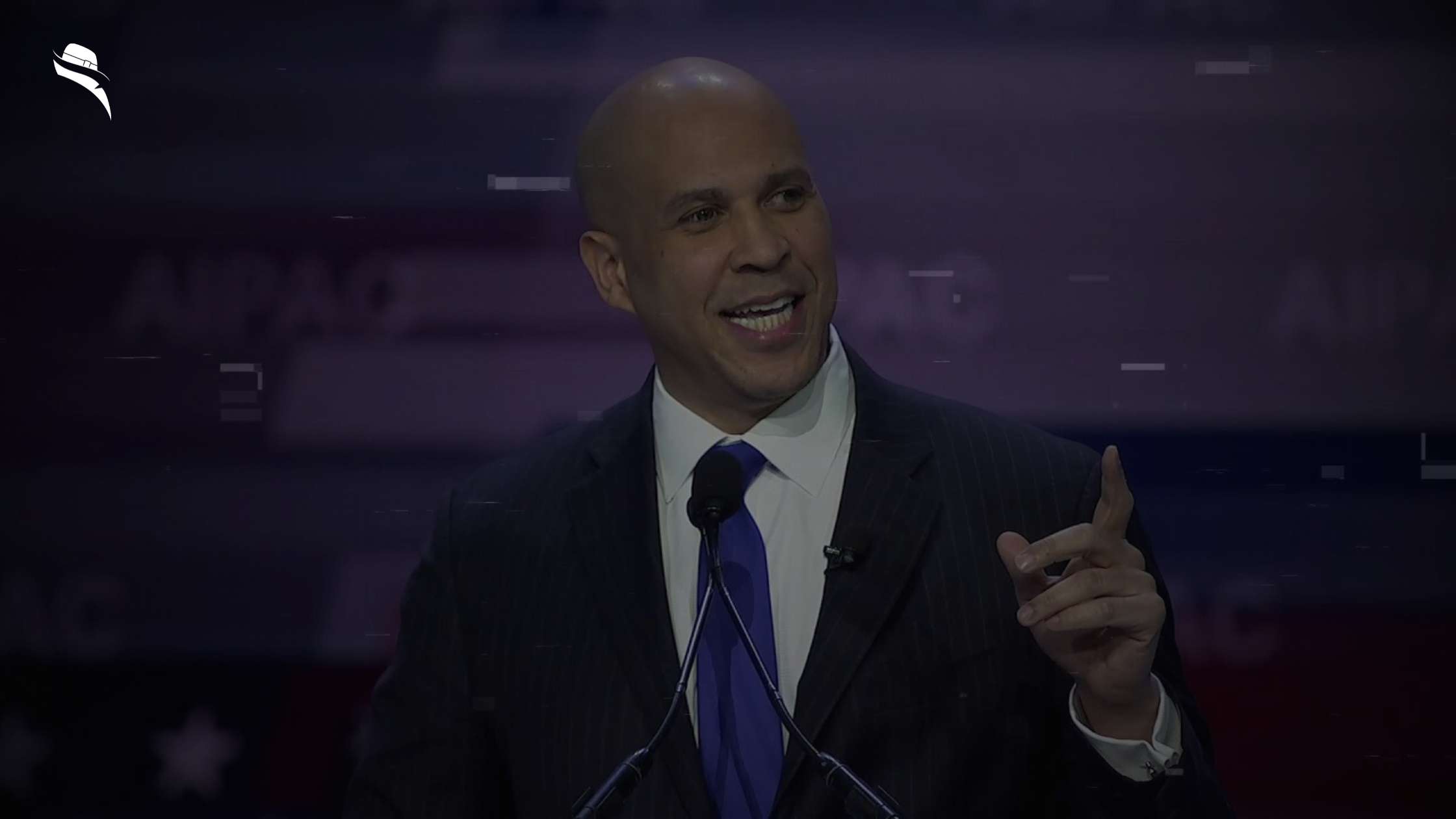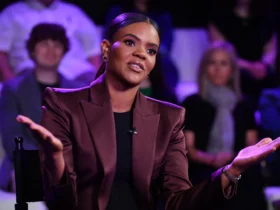Cory Booker stance on Israel stands out among his Democratic colleagues, as he has consistently been one of the party’s most vocal supporters of the Jewish state. In fact, he distinguished himself as the sole Democratic co-sponsor of the controversial Israel Anti-Boycott Act, which aimed to criminalize support for the BDS movement in specific scenarios.
Furthermore, Booker’s AIPAC ties run deep, evidenced by his regular appearances at the organization’s annual policy conferences, where he addresses thousands of activists. His unwavering support comes despite growing controversies surrounding his positions, including criticism from progressives and accusations of ignoring Palestinian human rights. Notably, Booker has publicly criticized fellow Democrat Rep. Ilhan Omar for her comments about AIPAC’s influence in Congress, while simultaneously working to strengthen bipartisan support for Israel.
In this article, we’ll examine the complex relationship between the New Jersey Senator and pro-Israel lobbying groups, particularly in light of AIPAC’s significant political influence, spending more than $3.5 million in lobbying alone in 2018. We’ll also explore how Booker has positioned himself amid rising hate crimes and political tensions, including the FBI’s finding that between 2016 and 2017, hate crimes in New Jersey alone rose by 76 percent.
Cory Booker’s Longstanding Relationship with AIPAC
The relationship between Senator Cory Booker and the American Israel Public Affairs Committee (AIPAC) began long before his entry into national politics. Throughout his career, Booker has maintained close connections with the pro-Israel lobbying group, developing bonds that have shaped his political positions on Middle East policy.
Early visits to Israel and AIPAC conferences
His first trip to Israel occurred during my time at Yale Law School, which laid the foundation for his ongoing engagement with Israeli affairs. Since entering politics, he has been a regular fixture at AIPAC’s annual policy conferences, addressing thousands of pro-Israel activists with passionate speeches. During these conferences, Booker frequently emphasizes shared values between the United States and Israel, referring to the relationship as “sacred.” At the 2019 AIPAC conference, He spoke forcefully about maintaining bipartisan support for Israel, even as some progressive Democrats chose to boycott the event.
Personal ties with AIPAC leadership
Beyond formal appearances, His connections with AIPAC extend to personal relationships with key figures in the organization. These relationships have developed over years of interaction at both public events and private meetings. Several AIPAC board members have become significant financial backers of his political campaigns, contributing substantially to his Senate runs. Moreover, he has maintained close friendships with prominent AIPAC leaders, occasionally citing these personal connections when defending my pro-Israel positions against criticism from progressive activists.
Public praise and private communications
On public platforms, Booker consistently praises AIPAC’s mission, often using civil rights language and religious references to frame his support for Israel. In private communications with AIPAC leadership, he has reportedly discussed legislative strategies and policy positions. After initially supporting the Iran nuclear deal, he later opposed it—a position more aligned with AIPAC’s stance. Additionally, when facing criticism from progressives about his ties to AIPAC, he defended the organization as promoting bipartisan dialogue rather than pushing a particular agenda, though critics point to this as evidence of political calculation rather than principle.
Cory Booker Stance on Israel, Support for Israel, and Legislative Actions
Throughout his Senate career, Booker has translated his pro-Israel rhetoric into concrete legislative actions, positioning himself as a stalwart defender of the Jewish state in Congress.
Co-sponsorship of the Israel Anti-Boycott Act
As the lone Democratic co-sponsor of the Israel Anti-Boycott Act, Booker distinguished himself even among pro-Israel Democrats. This controversial legislation aimed to combat economic pressure against Israel by allowing states to punish contractors engaging in boycotts of the country. Although he initially supported the bill, Booker later expressed concerns about potential First Amendment violations in its original form.
Opposition to the BDS movement
“I do not support BDS. Never have, never will,” Booker declared unequivocally at Tufts University. He has consistently criticized the Boycott, Divestment, and Sanctions movement, arguing that “there are elements in the BDS movement that want to destroy the State of Israel”. Booker has questioned the movement’s disproportionate focus on Israel compared to other countries with problematic human rights records, asking, “Where is the Chinese BDS movement because of what they’re doing to the Uighurs?”
Efforts to amend anti-BDS legislation for bipartisan support
Nevertheless, Booker’s position on anti-BDS legislation has evolved. He voted against an earlier version that he considered “an assault on First Amendment rights”. Subsequently, he supported Senator Ben Cardin’s amended version that, according to Booker, “protects American companies from being forced by foreign international organizations to comply with things that they shouldn’t have to comply with”.
Booker has attempted to balance his opposition to BDS with his commitment to Palestinian rights, stating, “I am fully committed to Palestinians having their own fate and the right to self-determination”. This approach reflects his broader effort to maintain both his pro-Israel credentials and his progressive bona fides in an increasingly polarized political landscape.
Public Rhetoric and Use of Civil Rights Language
Senator Booker employs distinctive rhetorical techniques when discussing Israel, weaving together civil rights history, religious references, and moral framing to create a powerful narrative supporting his stance.
Invoking Martin Luther King Jr. and Torah references
In speeches about Israel, He frequently quotes Martin Luther King Jr.’s famous words: “Darkness can’t drive out darkness. Only light can do that. Hate can’t drive out hate. Only love can do that.” His rhetoric often incorporates Hebrew terminology, as evidenced by my use of “Hineni” (Here I am) during a historic 25-hour Senate speech. This biblical term, used when Abraham heeded God’s call, symbolizes moral responsibility. He has even been known to say, “This is the Jewish way. Love strangers, for you were once a stranger in a strange land.”
Framing Israel as a moral and democratic ally
Booker consistently portrays Israel as sharing fundamental American values. During a desert campfire in Israel, he played King’s “I’ve been to the mountaintop” speech while overlooking Mt. Nebo, linking civil rights struggles with “the dream of Israel, the dream of America, the dream of democracies.” He emphasizes that Israel represents moral principles amid regional instability.
Criticism of Trump and Pence’s partisanship
At AIPAC conferences, He has condemned what he calls Vice President Pence’s “rank partisanship” and “cynical attempt to drive a wedge through the pro-Israel community.” He argues that Trump’s foreign policy decisions, especially regarding Syria, created vulnerabilities for Israel by strengthening Iran’s regional position.
Criticism and Controversies Surrounding His Stance
Booker’s unwavering support for Israel has sparked significant opposition from various quarters of the Democratic Party, creating rifts that reflect broader ideological divisions.
Progressive backlash and MoveOn’s AIPAC boycott
Progressive advocacy group MoveOn.org called on Democratic presidential candidates to boycott the 2019 AIPAC Policy Conference, which at least five Democratic contenders heeded. Booker, however, defied this boycott, delivering what attendees described as a “rousing speech” at the conference. This decision highlighted the growing divide between establishment Democrats and the party’s progressive wing on Israel policy.
Silence on Palestinian human rights
Critics point to Booker’s relative silence on Palestinian suffering, particularly during the Gaza conflicts. Unlike Senators Bernie Sanders and Elizabeth Warren, who called for Israeli restraint against peaceful protesters in Gaza in 2018, Booker issued no remarks when Israeli forces killed Palestinian demonstrators. This pattern continued into 2023-2025, with Booker releasing statements on Gaza’s humanitarian crisis that mentioned “Israel” only once.
Criticism of Ilhan Omar and intra-party tensions
Booker condemned Rep. Ilhan Omar’s comments about AIPAC’s influence as “absolutely unacceptable”. Without naming her directly, he referenced her controversial “It’s all about the Benjamins” tweet. In contrast, presidential contenders Sanders, Harris, and Warren defended Omar against accusations of antisemitism.
Accusations of political opportunism
Critics suggest Booker’s staunch pro-Israel stance stems from political calculation rather than principle. His top contributors between 2013-2018 were individuals affiliated with NORPAC, a pro-Israel lobbying group. Furthermore, his refusal to endorse anti-Israel politicians reflects what some perceive as careful positioning for future political aspirations.
Curious about where other U.S. representatives stand on the Israel-Palestine conflict? Explore more profiles here.
Final Thoughts
Senator Cory Booker’s position on Israel represents a complex balancing act within increasingly divided Democratic politics. His steadfast support amid shifting party dynamics highlights the challenges faced by mainstream Democrats attempting to maintain traditional alliances while addressing progressive concerns.
Examining Booker’s Israel stance reveals much about contemporary American political calculations. The tension between his unwavering AIPAC support and growing progressive scrutiny illustrates the widening ideological gaps confronting Democratic politicians on foreign policy matters.
What distinguishes Booker’s approach is his attempt to frame pro-Israel positions through civil rights language, a strategy that has yielded mixed results. By invoking moral imperatives alongside practical policy considerations, he has crafted a distinctive rhetorical position that nonetheless falls short of satisfying critics concerned about Palestinian rights.
Looking forward, Booker faces significant challenges in reconciling his longstanding Israel commitments with evolving Democratic Party positions. As progressives gain influence and questions about unconditional support for Israel become more mainstream, his ability to navigate these tensions will likely define this aspect of his political identity.
Ultimately, Booker’s stance on Israel serves as a microcosm of broader tensions in American politics, where traditional alliances, moral considerations, practical geopolitics, and electoral calculations constantly intersect and sometimes collide.
FAQs
1. What is Cory Booker’s Stance on Israel?
Senator Cory Booker is one of the most vocal pro-Israel Democrats. He has consistently supported the U.S.–Israel alliance, appearing at AIPAC events and backing legislation that protects Israel’s interests.
2. Did Cory Booker support the Israel Anti-Boycott Act?
Yes. Booker was the only Democrat to co-sponsor the controversial Israel Anti-Boycott Act, which aimed to penalize participation in boycotts against Israel under certain conditions.
3. Does Cory Booker support the BDS movement?
No. Booker has firmly rejected the Boycott, Divestment, and Sanctions (BDS) movement, calling it harmful and disproportionate in its targeting of Israel.
4. How does Booker balance support for Israel with Palestinian rights?
While Booker opposes BDS and supports Israel, he has occasionally expressed concern for Palestinian self-determination. However, critics argue he remains largely silent on Palestinian human rights issues.
5. What is Cory Booker’s relationship with AIPAC?
Booker has long-standing ties to AIPAC, frequently attending their annual conferences and maintaining personal connections with AIPAC leaders and donors who support his political campaigns.
6. Has Booker faced criticism for his stance on Israel?
Yes. Progressive groups like MoveOn.org and individuals within the Democratic Party have criticized Booker for being too closely aligned with pro-Israel lobbying groups and for not speaking out enough about Palestinian suffering.
7. How does Booker justify his support for Israel?
Booker often uses civil rights language and religious references to defend his pro-Israel views, portraying the U.S.–Israel relationship as rooted in shared democratic and moral values.
8. Did Booker defend or criticize Rep. Ilhan Omar’s comments on AIPAC?
Booker criticized Rep. Ilhan Omar’s remarks about AIPAC’s influence, calling her comments “unacceptable,” in contrast to other Democratic leaders who defended her.
9. How has Booker voted on legislation related to Israel and the Middle East?
Booker has supported several pro-Israel bills and amendments, including a revised version of the Anti-Boycott Act, but also opposed initial drafts over free speech concerns.
10. Why is Booker’s stance on Israel significant within the Democratic Party?
Booker represents a more centrist, traditional Democratic stance on Israel at a time when many in his party are shifting toward a more critical position, making him a key figure in ongoing intra-party debates on U.S. foreign policy.







Leave a Reply